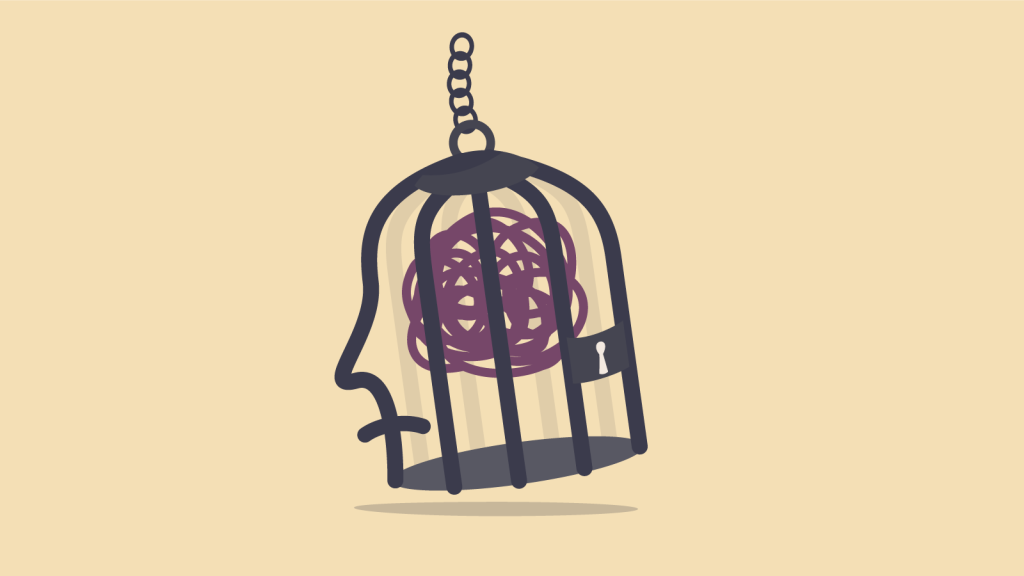TRAPPED IN 1960

“If our people cannot draw from their suffering, then they have been dealt such a tragedy in vain,” writes one of the most important living intellectuals of this land, the poet Kyriakos Charalambides. In the face of this shameful state of affairs: the loss of half of our homeland, a mutilated island, and, as developments indicate, a Turkified northern part, one would expect that, as a people, we would stand more firmly against those who dealt a decisive blow to our fate. Half a century or more later, our criticism should have been sharper and our vision anything but blurred. If we had the ability to impartially call a spade a spade, we would learn from our suffering, and the tragedy that has befallen us, and which we will unfortunately bequeath to our children and grandchildren, would not be in vain. We would be able to ask ourselves honestly: With so many ‘great leaders’, how the hell did we end up like this? Were they wise men? Were they visionaries? Were they forward-looking? They were none of these things. They were neither visionaries nor forward-looking. Short-sighted? Yes. Their political judgment? Myopic. Selfish? Yes. Naive? Mostly. Buccaneers? Undoubtedly. Is the fact that they were steering through stormy waters a mitigating factor? We can accept that. But when will “historical context” cease to be an alibi in the critique of that era? Whether Georgios Theodorou Grivas is a “worthy son of our homeland” or all the things that Glafkos Clerides and Tassos Papadopoulos said in Parliament shortly before his death in 1974 would have been clarified by now. “…In acting as he did, in no way did he consider or take into account the consequences of illegality on our national issue […], thus arming the social element with incontrovertible arguments on internal security issues” / “Digenis the builder has now become Grivas the demolisher. Today there is no dilemma regarding the legitimacy of Digenis or Grivas, because the legend of Digenis of EOKA was destroyed and dismantled by EOKA B” [Translator’s note: respective statements by Clerides and Papadopoulos on Grivas before the House of Representatives on January 10, 1973]. Nor would we invoke the childish argument of the six-month period. “To err is human; but to admit errors is indicative of a superior civilisation and a nobler manhood,” writes Spyros Papageorgiou, one of the General’s close associates, in the preface to his book, entitled ‘Makarios, a march through fire and iron’. He notes that by the summer of 1973 Grivas had decided to “eliminate Makarios and take power through a coup d’état”. “Now the fact that I am writing about ‘Grivas’s murderous plans’ is causing fake outrage among fanatic supporters of Grivas. But what can we do, if that is history?” Also, “When one thinks of how much Makarios was in danger from Grivas, it is almost impossible to believe that the two leaders had once worked together smoothly and with such loyalty to one another.” Elsewhere in the book, on page 159, it is stated that, despite the differences between Grivas and the [Greek] dictator Georgios Papadopoulos, “…Grivas nevertheless sought the same thing as the Junta in Athens, the elimination of Makarios and the dissolution of the Cypriot state”.
What I am writing is not intended to offset, and certainly not to absolve the other culprit of our tragedy. On the contrary. It is no coincidence that any positives or, better still, any excuses for what they did, are given a positive significance only on the basis of and in relation to the negative things each of them did. And, of course, there is no doubt as to why parties and politicians still wear their badges on their lapels, or that the frequent stirring up of the issue is primarily for petty political purposes. But with regard to us, the common people, what exactly is the reason for us to remain trapped and blind, in 1960? What complexes are we nurturing?
Source: TRAPPED IN 1960